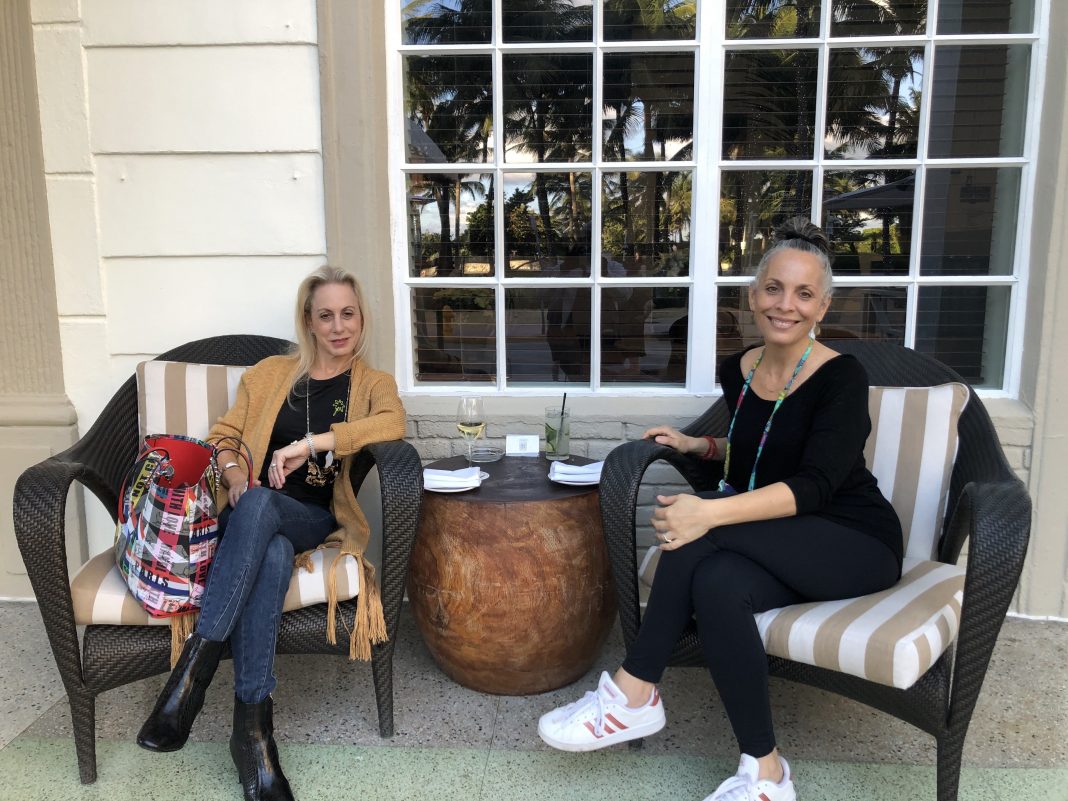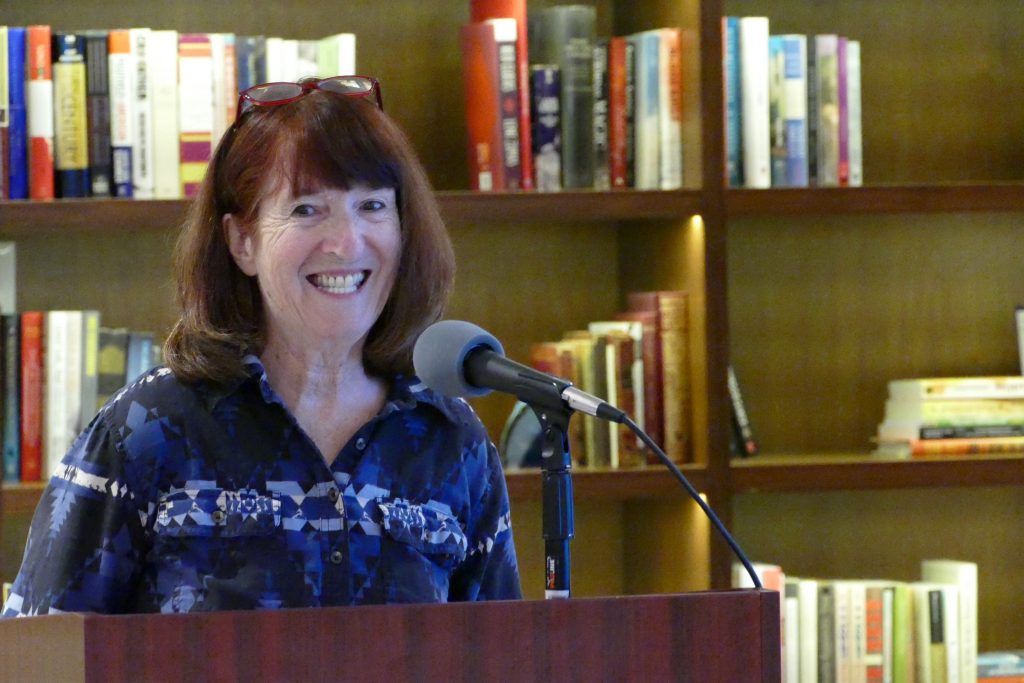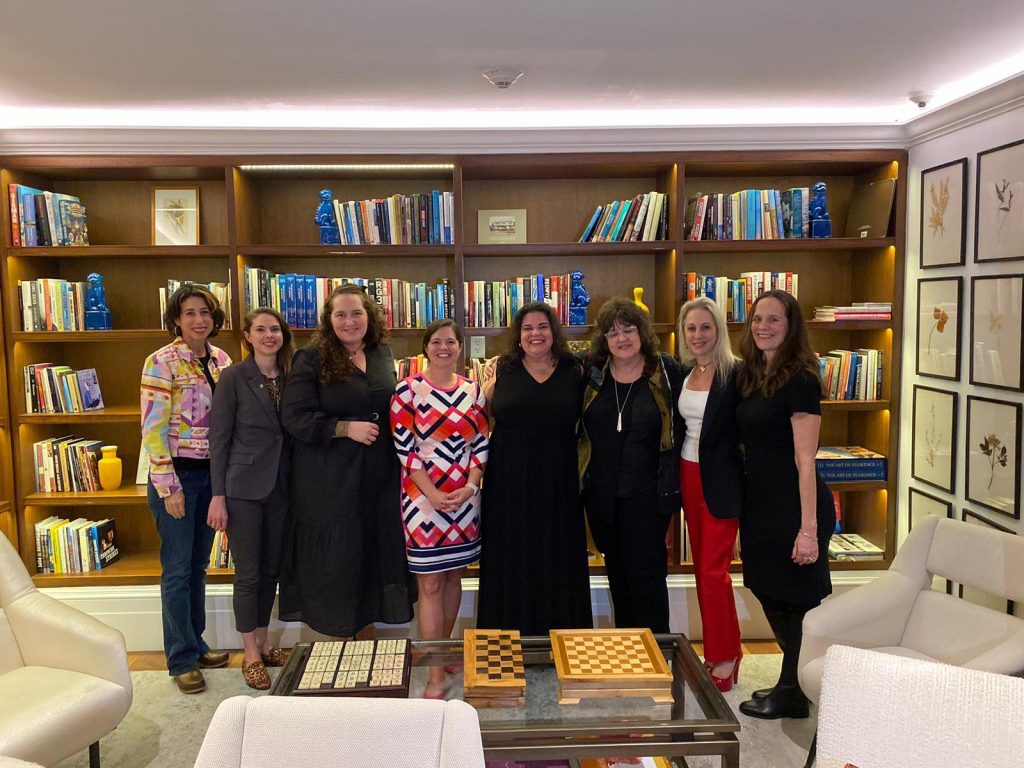
When Miami-based poet Catherine Esposito Prescott and UM alumnus Jen Karetnick participated in poetry readings about 17 years ago, they were often the only women readers at events. This shared experience became something to bond over for the two friends.
“We used to talk about it all the time, that we were always like the one token woman at the meeting,” Karetnick said. “Then we realized that we need to do something about that. We talked about it for a few years before we actually did anything about it, but that was the impetus for SWWIM.”
Prescott and Karetnick created Supporting Women Writers in Miami (SWWIM) to ensure that women not only have a space to share and promote their work, but also to connect with each other.
In 2016, SWWIM began in the form of a reading series held at The Betsy Hotel on South Beach.
“We talked about publishing a little bit, but that was kind of on the backburner,” Prescott said. “And then we decided, ‘Hey, let’s do a reading series. Let’s just do a reading series, so women can come read together and meet each other and create community.’”
Thanks to the support of Vice President of Art at The Betsy Hotel Deborah Briggs, the women were able to secure a venue for their reading series. Since then, SWWIM has evolved into something bigger than the two women ever imagined.
The pair launched SWWIM Every Day, a nationally-recognized daily poetry journal, in 2017 after they felt the reading series wasn’t enough. Literary journals that solely publish women poets already existed at the time, so the women added their own twist to it, publishing a poem every weekday.
“We didn’t know if anyone would want to submit,” Prescott said. “We didn’t know if what we were feeling and intuiting was what other people were feeling.”
With the help and generosity of colleagues, they soon found themselves filling up SWWIM Every Day weeks ahead of time.
One of these colleagues was UM professor Mia Leonin, a contributor to SWWIM since the very beginning. Leonin was invited to read at the very first poetry reading held at The Betsy, an experience that she called “an honor” to be a part of.
“I think the initial format that they’ve had from the very beginning of pairing up local writers with nationally recognized writers — they had a lot of foresight in doing that,” Leonin said. “It’s created a sense of larger community [and] a lot more conversations amongst poets.”
Caridad Moro-Gronlier, a local poet and associate editor for SWWIM, also contributed to SWWIM in its early days. She was already a big fan of SWWIM’s work before the org asked to join their editorial team.

“I really loved the mission of supporting women writers in Miami, nationally and beyond,” Moro-Gronlier said. “I was just thrilled to be a part of such a wonderful, pioneering organization.”
Lines are blurred within SWWIM’s editorial team, which consists entirely of women poets and writers. Not only does Moro-Gronlier handle submissions and feedback, but she also MCs for SWWIM’s reading series and handles marketing. Everyone on the team contributes in any way they can.
“We have a lot of built-in respect among us,” Prescott said. “Each woman has her job, and we don’t all report to one person — we report to each other. So, we have more like a lateral organizational structure rather than a hierarchical one.”
For Moro-Gronlier, working for SWWIM has been rewarding both professionally and personally. She’s connected with talented poets from all over the country and worked with women she genuinely admires.
“[I’ve been given] the opportunity to work with a dynamic, amazing group of women, unlike any sort of collaboration I’ve had before.” Moro-Gronlier said. “That’s thrilling on a creative level and on a personal level.”
While the premise of SWWIM was to amplify women’s voices, they have acknowledged that women are not the only demographic made invisible in male-dominated spaces. SWWIM has made it clear that they welcome not only the work of those who identify as women, but also nonbinary and intersex poets.
“We’ve had to, over time, expand our definition of women — like gender, what is that?” Prescott said. “We put it on our website, and this is something we keep coming back to as we’re called out, as we’re challenged.”
Their next step is pursuing a non-profit status, which they hope to achieve sometime this year. Right now, SWWIM is being kept afloat by the donations of their benefactors and supporters. Non-profit status would mean they could apply for grants, which would give them the resources to expand the organization even more in the future.
“We have some ideas that we’re still playing around with. We’d like to publish. Perhaps starting with an anthology, and maybe some chapbooks,” Karetnick said. “For now, I think we’re in a really good place.”
The connections made at SWWIM’s readings series can be a valuable tool for young poets that are just starting out. For Prescott, who began writing poetry in high school, finding a mentor was life changing.

“I started writing and I was terrible and then I put it down,” Prescott said. “I actually got a 65% on a poetry assignment.”
After failing to get into her school’s audio-visual class during her senior year of high school, her guidance counselor suggested she take creative writing instead.
“He just lit the spark, and it’s carried me all the way through this time.” Prescott said. “He demystified and opened up the world of poetry for me.”
Karetnick, on the other hand, began writing poetry in college. Her only poetry experience before then was in fourth grade, when she wrote three poems that she ended up carrying with her throughout high school.
“I wanted to be a fiction writer, and I signed up for fiction seminars in college, and they were always full,” Karetnick said. “The poetry ones were the ones that were always open, so finally I was like ‘Fine. Forget it. I’ll just take poetry. I hate poetry, but I’ll take it.’”
During the first half of the course, Karetnick describes her work as being “God awful.” That was, until she had a midterm scheduled for the same day one of her poetry assignments was due.
“I studied all night and at five o’clock in the morning, I started writing a poem,” Karetnick said. “I must have reached that point in your subconscious where you don’t know what you’re doing, and a real poem came out.”
When she shared her poem in class, her professor noticed a shift in her writing.
“She was like, ‘This is a real poem. You are a real poet,’” Karetnick said. “And that changed everything.”
Prescott and Karetnick believe it is essential for young poets to seek out mentors that share a different point of view. They also emphasize how important it is to read as much literature as possible and not take criticism too personally.
“It is an art, but it’s also a craft and it’s something you get better at over time,” Prescott said. “Be patient with yourself and allow yourself time to become a good writer. And just know that you can, it just takes a lot of work.”






